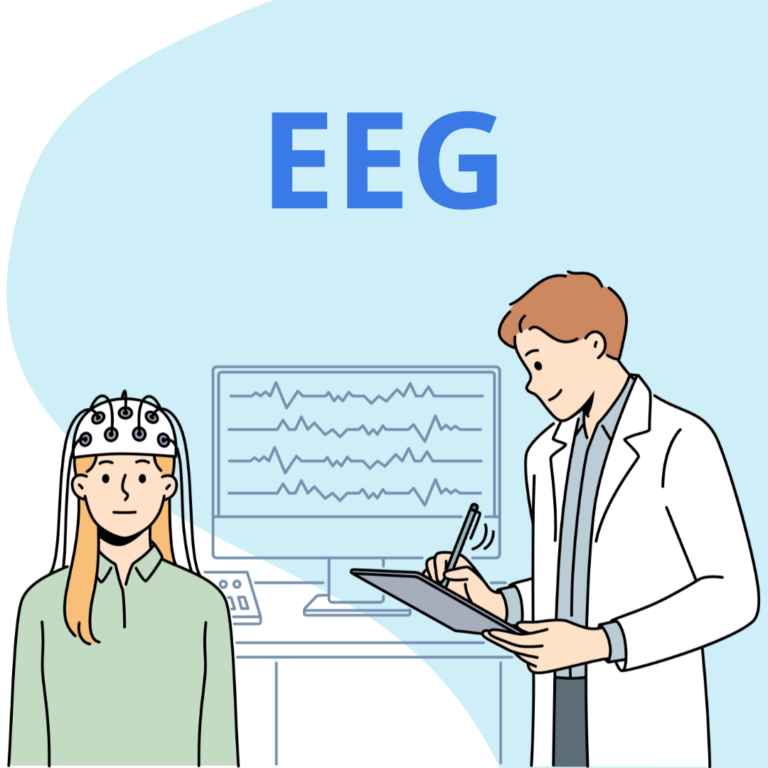Preparing for pregnancy in a woman with epilepsy is a long-term process, which should be discussed and planned in detail and the recommendations put into practice well before the childbearing stage.
Table of contents
Pregnancy planning in a patient with epilepsy
Most patients with epilepsy have healthy pregnancies and more than 90% of them have healthy babies. However, we cannot rely on chance. We know that uncontrolled epileptic seizures and inappropriate treatment are associated with risks for both mother and child.
It is important that the woman is under the care of specialists who have the necessary knowledge and experience in the care of epileptic patients and the key to safety is early planning of the pregnancy. This gives us the opportunity to optimise treatment, i.e. to adjust the type and amount of medication to the needs of the pregnancy. Any change in treatment requires time to assess its effectiveness, and this does not happen overnight.
Despite increased awareness and knowledge of epilepsy, approximately 40% of pregnancies are still unplanned. Ideally, every young woman should, from the moment her epilepsy is diagnosed, be offered an optimal treatment for her potential pregnancy, regardless of when and if she plans to have children. In practice, however, this is often not the case.
How should a woman with epilepsy prepare for pregnancy?
There is no one path, no one ideal scheme for preparing for pregnancy that we can implement in the same way for all women with epilepsy. Each case of epilepsy is different, each patient has a different type of seizure, a different frequency of seizures and the effectiveness of the drugs used varies. Pregnancy planning is therefore a step-by-step and individually tailored plan of action including:
- optimisation of anti-epileptic treatment – your neurologist will review your treatment and optimise it in terms of efficacy, i.e. the degree of seizure control, and safety, i.e. the lowest possible risk of teratogenicity;
- folic acid supplementation – folate supplementation should begin at least 3 months before pregnancy and should be continued during pregnancy, as well as during postpartum and breastfeeding;
- measurement of blood concentrations of antiepileptic drugs – serum concentrations of most new generation antiepileptic drugs may fluctuate during pregnancy and decreased concentrations may contribute to increased seizures; it is therefore advisable to monitor blood concentrations of selected drugs before pregnancy and at least once during each trimester – your neurologist will decide whether and when such measurements should be taken;
- Provide opportunities for information exchange between neurologist, gynaecologist and midwife – it is important to select specialists experienced in the care of women with epilepsy and to enable them to contact each other if necessary;
- introduction of safety rules during pregnancy and in the postpartum period – epileptic seizures, both generalised and focal, may lead to accidental falls and injuries; taking care to prepare properly for delivery, introducing specific habits into daily life will minimise the risk of injury in case of a seizure
- discuss the possibilities and important principles of breastfeeding – breastfeeding is possible for most women with epilepsy, safety depends very much on the treatment being given – discussing this with your neurologist while you are still pregnant will allow you to make decisions about how to feed your baby.
When to plan a pregnancy
It is difficult to know how long it will take to prepare for pregnancy – it is different for every patient. We know, for example, that absence of seizures 9 to 12 months before pregnancy gives a 70-90% chance of absence during pregnancy. Therefore, the earlier you discuss pregnancy with your neurologist, the more valuable time you will have to prepare.
Pregnancy project with CTP Neurosphera
At CTP Neurosphera, we treat women of all ages, implementing the highest standards of neurological care from the beginning. We also accept patients who wish to come under our care in preparation for pregnancy, during pregnancy and postpartum. Each year Neurosphera specialists treat many women planning motherhood, actively accompany them during the preparations for pregnancy, supervise the course of the pregnancy itself and support parents during the postpartum period.
Our specialist, neurologist Maja Kopytek-Beuzen, attaches particular importance to the promotion of knowledge about epilepsy among women by organizing free educational actions and running an information profile on FB addressed to such patients: https://www.facebook.com/KobiecosciPadaczka.
Remember to discuss pregnancy and motherhood with your neurologist as early as possible!




